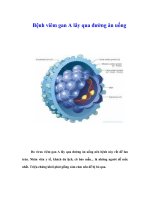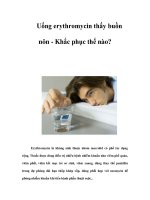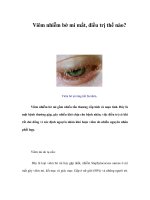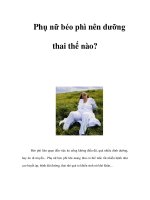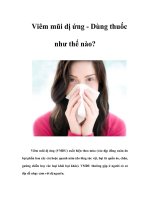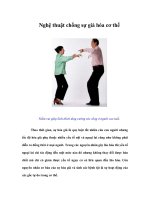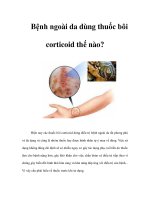Tài liệu University Oars Being a Critical Enquiry Into the After Health of the Men Who Rowed in the Oxford and Cambridge Boat-Race, from the Year 1829 to 1869, Based on the Personal Experience of the Rowers Themselves pdf
Bạn đang xem bản rút gọn của tài liệu. Xem và tải ngay bản đầy đủ của tài liệu tại đây (10.53 MB, 419 trang )
Cambridge
e city of Cambridge received its royal charter in 1201, having already been
home to Britons, Romans and Anglo-Saxons for many centuries. Cambridge
University was founded soon aerwards and celebrates its octocentenary in
2009. is series explores the history and inuence of Cambridge as a centre
of science, learning, and discovery, its contributions to national and global
politics and culture, and its inevitable controversies and scandals.
University Oars
University Oars is a compilation of letters of response to the author from the
participants of the Oxford and Cambridge boat races. John Edward Morgan,
himself a former university oarsman and physician to the Manchester Royal
Inrmary, spent four years sending inquiries and compiling responses in his
eort to shed some light on an important perceived physiological problem
which he sought to investigate for the welfare of the rising generation.
Published in 1873, his responses numbered 251 out of 255 letters sent to
university oarsmen, detailing the athletes’ current physical and mental
condition. Morgan’s ndings dispel the widely held notion of the time that
the famous test of strength and endurance had adverse latent physiological
and psychological eects on its stalwart participants.
C a m b r i d g e L i b r a r y C o L L e C t i o n
Books of enduring scholarly value
Cambridge University Press has long been a pioneer in the reissuing of
out-of-print titles from its own backlist, producing digital reprints of
books that are still sought aer by scholars and students but could not be
reprinted economically using traditional technology. e Cambridge Library
Collection extends this activity to a wider range of books which are still of
importance to researchers and professionals, either for the source material
they contain, or as landmarks in the history of their academic discipline.
Drawing from the world-renowned collections in the Cambridge
University Library, and guided by the advice of experts in each subject area,
Cambridge University Press is using state-of-the-art scanning machines
in its own Printing House to capture the content of each book selected for
inclusion. e les are processed to give a consistently clear, crisp image,
and the books nished to the high quality standard for which the Press
is recognised around the world. e latest print-on-demand technology
ensures that the books will remain available indenitely, and that orders for
single or multiple copies can quickly be supplied.
e Cambridge Library Collection will bring back to life books of enduring
scholarly value (including out-of-copyright works originally issued by other
publishers) across a wide range of disciplines in the humanities and social
sciences and in science and technology.
University Oars
Being a Critical Enquiry Into the Aer Health
of the Men Who Rowed in the Oxford and
Cambridge Boat-Race, from the Year 1829 to
1869, Based on the Personal Experience of the
Rowers emselves.
J E M
CAMBRID GE UNIVERS I T Y PRESS
C
ambridge, N
e
w Y
o
rk, Melbourne, Madrid, Cape T
o
wn, Singapore,
São Paolo, Delhi, Dubai, T
o
kyo
Published in the United States of America by Cambridge University Press, New York
www.cambridge.org
Information on this title: www.cambridge.org/9781108000581
© in this compilation Cambridge University Press 2009
is edition rst published 1873
is digitally printed version 2009
ISBN 978-1-108-00058-1 Paperback
is book reproduces the text of the original edition. e content and language reect
the beliefs, practices and terminology of their time, and have not been updated.
Cambridge University Press wishes to make clear that the book, unless originally published
by Cambridge, is not being republished by, in association or collaboration with, or
with the endorsement or approval of, the original publisher or its successors in title.
UNIVERSITY
OARS.
OARS
BEING
A CRITICAL ENQUIRY INTO
THE
AFTER HEALTH
OF
THE MEN WHO
ROWED
IN
THE
FROM
THE
YEAR
1829 TO 1869,
BASED
ON THE
PERSONAL EXPERIENCE
OF
THE
ROWERS THEMSELVES.
JOHN ED. MORGAN, M.D., M.A. OXON., F.R.C.P.
LATE CAPTAIN
OF
THE JOHN
+
(COLL. UNIV.), PHYSICIAN
TO THE
MANCHESTER
ROYAL INFIRMARY, AUTHOR
OF "
DETERIORATION
OF
RACE,"
&C
'
Row
and
work, boys
of
England,
on
rivers
and
seas,
And
the old
land shall hold, firm
as
ever,
her own."
MACMILLAN
AND
CO.
1873.
[All Rights reserved.^
BY
PERMISSION
TO
THE HONOURABLE
MR.
JUSTICE DENMAN,
SENIOR CLASSIC,
FORMERLY FELLOW
OF
TRINITY COLLEGE, CAMBRIDGE,
WINNER OF THE COLQUHOUN SCULLS
AND
UNIVERSITY
OAR.
THE
following pages contain the results of an enquiry
into the after health of University Oars, which has
been carried out with more or less interruption during
the last four years. It was commenced in the spring of
the year 1869. I then hoped to obtain the information
which I needed in the course of twelve or eighteen
months, but I soon found that the labour which I had
undertaken was likely to prove more arduous and more
tedious than I had anticipated. A certain portion of
the rowers still retained their names on the College
Books; but many (39) were dead, and a still larger
number had disappeared, and whither they had directed
their steps it was no easy matter to ascertain. When,
therefore, I had applied to all their surviving fellow-
Oarsmen without avail, and when also I had written to
many of their College contemporaries without discover-
ing any trace of their habitation, I had no resource left
but to search the different town and county Directories.
Twenty-seven of the Oars had, however, gone abroad, or
emigrated, and were either residing in our Colonies or in
other parts of the world, and the only method I could
discover of obtaining information regarding several of
viil INTRODUCTION.
them, was to write to persons bearing the same name
in this country. Moreover when I had actually suc-
ceeded in obtaining the addresses of those who were
missing it was not always easy to extract a reply
to my troublesome enquiries. That such should be the
case was nothing more than might be anticipated, as
questions respecting health, proceeding from a complete
stranger, must always be looked upon with a certain
amount of suspicion. The subject of our ails and our
aches is a somewhat delicate one. When therefore my
hygienic appeals were consigned to the fire or the waste
paper basket, it seemed a politic measure to allow some
time to elapse ere I renewed my importunate requests,
while at the same time I endeavoured to obtain through
the assistance of common friends, or some of our leading
rowing authorities, either a personal introduction, or at
all events some recognition of the importance of my
researches.
Another difficulty with which I have had to contend
has arisen from the numerous inaccuracies which more
or less pervade all the lists of the University Oarsmen,
inaccuracies which very materially detract from the
value of those records. I have learnt also from painful
experience that neither the University Calendars nor
the College Books can be implicitly trusted. The mis-
placement or alteration of initial letters, and the mis-
spelling of surnames, virtually substitute some illegiti-
mate stranger for the rightful possessor of an Oar.
These and similar reasons will I believe serve as some
INTRODUCTION.
IX
apology
for the
length
of
time occupied
in
making this
enquiry, more especially
as the
work
has
been carried
on
in
the few
leisure hours
I
could snatch from
the
toils
of
an
arduous
and
exacting profession.
Had I, in the
case
of
some twenty
or
twenty-five men, contented
my-
self with
the
accounts
I
received from contemporaries
and friends, without searching
on in
quest
of
those still
missing till
one by one
they were discovered,
the
results
of
this enquiry might have appeared some
two
years sooner.
I
have, however, felt strongly that
the
whole value
of
such
an
investigation must depend upon
its being exhaustive
; and
when
I
mention
the
fact that
out
of
the 255 Oarsmen who were alive
at the end of
the
year
1869, I
have succeeded
in
obtaining letters from
251,
it
will
be
admitted that
it
would
not be
practicable
to have carried
the
enquiry very much farther. Three
of those from whom
I
have
not
received letters belong
to
the
University
of
Oxford,
and one is a
graduate
of
Cambridge.
To
each
of
them
I
have addressed several
communications,
but
hitherto without avail. Another
old
Oar,
though
he has
favoured
me
with full particulars
regarding
his
health,
has
requested
me to
refrain from
publishing
his
name.
In
numerous cases
I
have
re-
ceived
the
information
I
solicited through
the
assistance
of kind friends
and
well-known authorities
in all
that
relates
to the
University Boat-Race. Although
it is
perhaps somewhat invidious
to
mention particular names
when
so
many have assisted,
I
still cannot refrain from
specially thanking
my
brother,
the
Rev.
H. A.
Morgan,
X INTRODUCTION'.
Jesus College, Cambridge, Mr Charles Stuart Parker,
M.R, Mr Halifax Wyatt, Mr Smyly, Mr S. D. Darbi-
shire, Mr George Morrison, the Rev. Arthur Shadwell,
and Mr Thomas Selby Egan, besides a very large
number of clergymen who have rendered me much
help in tracing old Oars who happened at any time
to have been located in their respective parishes. To
the clergy, therefore, among whose ranks may be
found a large number of the most accomplished dis-
ciples of the Bat and the Oar which the Universities
have turned out, I am deeply indebted for the kindness
and courtesy which they have invariably extended to
me.
Press of business has frequently prevented me
from acknowledging letters at the time they were re-
ceived. I would now beg to offer my apologies to my
correspondents for such apparent neglect, and to return
them my sincere thanks for their disinterested kind-
ness.
The Inter-University Races from 1829 to 1869 (both
years included) will be found chronologically arranged
and dealt with separately, in the following manner :
after a short description of each Race and a list of the
Oarsmen who took part therein, I have considered the
life-expectation of the united Crews (16 men in all), and
summarized the effects of Rowing on their after health.
This summary is succeeded by extracts from the letters
of the surviving Rowers in due order, those passages
being selected in which the writers refer to their own
personal experience. In some instances, however, in
INTRODUCTION. xi
which special interest seems to attach to what is said,
either from the position now occupied by an old Oar,
or from the nature of his communication, I have inserted
the remainder of the letter in a separate portion of
this work; where also will be found some remarks on
training and rowing by the Rev. H. A. Morgan, who,
during a twenty years' residence at Cambridge, has seen
much of Boat-racing and its effects. I have moreover
been favoured with contributions from those two distin-
guished coxswains, Mr Thomas Selby Egan and the Rev.
Arthur Shadwell, whose devotion to the art of Rowing,
acquaintance among old Oars, and success in training
some of the most finished University Crews, render
any expression of opinion coming from them peculiarly
valuable.
At the time when my investigations were com-
menced it appeared to me that the omission of all names
would enable me to discuss the subject with less re-
serve, and in some few of the letters which I addressed
to my earlier correspondents, I spoke of adopting this
plan. Many of them however objected to the arrange-
ment, some wishing to know how it had fared with their
old shipmates, others considering that much greater
weight would attach to these statistics if the personal
experience of each rower were backed up by his name
and signature. In all cases, therefore, where rowing was
not supposed to be attended with injurious results, I
decided to yield to their wishes and to insert the names,
taking care at the same time to obtain the permission
xii INTRODUCTION.
of the writers. As, however, there may be several to
whom I have inadvertently omitted to communicate
my change of plan, I have taken this opportunity of
explaining to them the reasons which induced me to
alter my intentions.
Where however there seemed grounds for suspecting
that rowing had been attended with more or less serious
consequences, I have omitted the names of the supposed
sufferers, and merely discussed their ailments in general
terms;
taking care to give no clue to the writer, but
merely affixing to each case, by way of distinction, a
letter of the alphabet. I also carefully excluded from the
published letters all personal allusions or remarks calcu-
lated in any way to cause annoyance to the surviving
Oarsmen or to the friends of those who are no longer
alive. It must not, however, be assumed that in all
cases where the name of a living Oarsman is not sup-
plemented by a letter, he has necessarily sustained some
injury from his exertions, for it must be remembered
that four or five of the rowers have withheld their per-
sonal testimony from me, though, through the courtesy
of their friends and fellow-Oars men, I have been supplied
with all needful particulars regarding the effects of
training and Boat-racing on their health.
I have endeavoured to discuss this much vexed
question in an honest and impartial spirit. I entered on
the enquiry without any personal bias in the matter,
and although in the replies with which I have been
favoured such passages as the following not unfrequently
INTRODUCTION, Xlll
occur: " if you are endeavouring to prove that Boat-
racing is followed by dangerous consequences, I consider
it very probable that you will fail in your object," I
must emphatically disclaim any such intention, having
undertaken this investigation solely from a desire to
throw some light on an important physiological problem,
a question which causes deep anxiety to all those who
are interested in the welfare of the rising generation.
Many persons entertain so profound a dread of the
University Boat-Race and similar trials of strength and
endurance, that it is no unusual thing to overhear pro-
phetic lamentations over the ephemeral bloom of these
apparently stalwart champions of the Oar. My statistics
are I believe calculated to dispel all such gloomy fore-
bodings, and to show that the hardy disciples of the
Isis and the Cam may fairly dispute the palm of health
and longevity with their less active commiserators.
I would here remind my readers of a leading article
which appeared in the Times of October the 15 th, 1867
(when a somewhat lively correspondence had been ex-
cited by the able letters of the late Mr Skey), and
from which I quote the following remarks: "The con-
troversy excited by Mr Skey's letter to this journal,
may be productive of great benefit, if it elicits the facts
which can alone decide it. When an eminent surgeon
appeals to his own experience and that of his professional
brethren in support of the opinion that many a con-
stitution is injured by the University Boat-Races, his
protest cannot be set aside by allegations of ' palpable
XIV
INTRODUCTION.
ignorance/
The
first question
is not, as one of our
correspondents seems
to
imagine, whether
Mr
Skey
understands
the
principles
and
practice
of
rowing,
but
whether
its
effects
are
such
as he
describes
in a
minority
of cases;
and, if
so,
in how
large
a
minority. Now, this
is
a
question upon which
no
evidence
but
medical
evi-
dence can be
of
much
value.
Young men soon lose sight
of their former contemporaries
at
School
and
College;
and
if they happen
to
hear
in
after life that
one has suc-
cumbed from heart complaint,
and
another broken down
from exhaustion
of the
nervous system, they seldom
think
of
coupling these calamities with over-exertion
in
athletic sports.
'The
evil/ according
to Mr
Skey,
'is
not
immediate,
but
remote.'
It is but a
seed
of
disease which
may or may not
germinate,
and it is for
doctors
and
physiologists
to
ascertain
how
often
it
does
germinate.
On the
other hand,
it
does
not
appear that
any statistical inquiry into
the
subject
has
ever been
made
by the
medical profession.
Had
such
an
inquiry
been made,
Mr
Skey would
not
have failed
to
quote
its
results, instead
of
referring
to
"some cases" which
he
had witnessed
himself,
and
"several more"
of
which
he
had heard. Twenty-four regular University Boat-Races
have now been rowed,
of
which eighteen were over
the
present course, five over
the
course from Westminster
to Putney,
and one
over
the
Henley course. Allowing
for those
who may
have rowed more than once,
the
number
of
persons
who
have taken part
in the
contests must considerably exceed
ioo,
besides
the
INTRODUCTION. XV
many hundreds or thousands who have within the
same period gone through an almost equally trying
ordeal in College races. If we knew the proportion of
these University Champions who have since died, or
become disabled, and if we also knew the mean per-
centage of mortality and illness among men of the same
age within the same period, we should be in a position
to judge, with some approach to certainty, whether these
matches do or do not tend to shorten life and weaken
the constitution. As it
is,
Mr Skey's warning is founded
in a great degree on presumptions, the grounds of which
are disputed by his opponents."
It will be seen from the foregoing extract that at
the time this correspondence was carried on, such
statistics as those which I have collected were felt to be
needed, but did not then exist.
Though this inquiry has occupied no inconsiderable
portion of my leisure hours during the last three or four
years,
and though its prosecution has necessitated the
writing of upwards of two thousand letters, still the
whole work has been a labour of love, prompted by a
pure affection for rowing, and by a deep-rooted conviction
that in these days of incessant mental tension and in-
tellectual excitement of every kind, we should not allow
so manly and health-giving an exercise to be unjustly
assailed.
For the satisfactory treatment of this subject two
qualifications seemed to me to be imperatively demanded.
First, some knowledge of physiology; and second, some
XVI INTRODUCTION.
acquaintance with the art of Rowing as it is practised at
our Universities. To both of these qualifications I may
lay some slight claim. As physician to a large hos-
pital, I have necessarily enjoyed large opportunities of
gaining an insight into the laws which regulate our
health; while my rowing experience began at Shrewsbury
(where I spent many a pleasant hour on the Severn),
and was matured at University College, Oxford, where
I was for three years captain of the John +, a boat which
has often played a prominent part in the struggles of
the Isis, and which has served as the training-school for
no fewer than ten of the Crews which during the last
thirty years have won the University Fours.
JOHN ED. MORGAN.
i, ST PETER'S SQUARE, MANCHESTER,
March, 1873.
UNIVERSITY OARS.
T
HERE is a question connected with the public
health which deserves more attentive considera-
tion than it has hitherto received. Athleticism under
its various forms has become a great national institution,
and annual displays of activity and strength are now
celebrated in every village in the country. Prizes and
medals are eagerly competed for; our great national
games are prosecuted by young England with an in-
creasing amount of spirit; Football, Cricket, Tennis,
Rackets, Running, Rowing, each and all have their
devoted adherents
;
the feats performed by those who
excel in these contests are not allowed to pass un-
noticed
;
newspapers, periodicals, almanacs and maga-
zines vie with each other in chronicling the fullest
particulars regarding victors and vanquished, and there
are champions of the oar and the cricket-field whose
achievements are more familiar to the rising genera-
tion than those of any general, statesman, or poet who
ever adorned the pages of English history.
Whatever may be thought of this spread of athle-
ticism, and worship of muscle, one thing is certain, that
even those who are unable to sympathize with such
pastimes must still accept them as established facts—
must look upon them as recreations which have taken
so firm a hold upon the public mind that no amount
U.O. I
UNIVERSITY OARS.
of preaching will lessen their attractions, and no amount
of indiscriminate warning from medical authorities
without more particular inquiries will ever do much to
loosen their hold upon the youth of Great Britain.
Viewing athletic contests then as national institu-
tions,
what is their influence upon health
?
Are they
calculated to improve the physique of our population?
to make men stronger and longer lived? or is such
violent exercise in early life more likely seriously to
undermine the constitution, entailing after effects both
painful and serious
?
That many of these contests
prove at times sufficiently trying, those who have par-
ticipated in them will readily admit. A ten or twelve
miles'
run with " fox and hounds," a three mile steeple-
chase, a long innings at cricket, a hard Boat-Race, all
severely tax the strongest muscles; and so long as these
games continue to be practised as they are practised at
the present day, when those who excel are continually
pitted against each other in a generous spirit of emula-
tion, when school meets school, and University sends
out its chosen representatives to do battle with its sister
University at Lord's and at Putney, so long will they be
taken up and carried through with true British per-
severance and pluck. That it should be so, is nothing
more than might be anticipated ; for surely there is no
Englishman, and indeed very few Englishwomen, who,
on seeing their son engage in such a struggle, trivial
though they may fain deem it, would not blush to
acknowledge him if he displayed any want of courage
or failed to exert himself for the time to the utmost of
his strength.
But what are the after effects of all this violent
exercise? This is a subject on which much has been
written, indeed it has been taken up on several occasions
UNIVERSITY OARS.
with no small degree of warmth: by some it has been
maintained that the sufferings entailed by such a struggle
as the University Boat-Race far outweigh any benefits
which may result from the exercise; that there is no
modern example of cruelty to animals so great as that
exhibited in this annual contest; and that the young
man who aspires for such laurels deliberately casts in
his lot for death or victory, perhaps for both.
Such is the language of the censors of these pas-
times.
To support their assertions they bring forward
the case of a boat which one hot summer's day rowed
from Oxford to London, and although the crew were
all sturdy and robust men when that disastrous voyage
was undertaken, five short years beheld them the sorry
wreck of what they once had been, and in another five
they were all consigned to an untimely grave. The
heart must be a hard one which could refuse to be
moved by so harrowing a tale, and with good reason
may the British mother bewail the murder of her inno*
cents and denounce the callous indifference of those to
whom their education is entrusted. As a further proof
of the dangers which result from excessive muscular
exercise, it has been usual to point to the after lives of
the champions of the prize ring, who at an early age, it
is alleged, lose their constitutional vigour and become
prematurely broken down in health. We hear also, on
somewhat doubtful testimony, that the athletes of ancient
Greece rarely attained the blessings of a green old age.
On such and somewhat similar grounds are the
objections to these pastimes generally founded. The
men of muscle, on the other hand, judging from their
own personal experience, no less than from their obser-
vation of others, unhesitatingly maintain, that although
in some few cases injury may result from such violent
1—2
UNIVERSITY OARS.
exertions, still, on the whole, the consequences are
rather beneficial than detrimental to health; and in
dealing with the casualties which are said to have oc-
curred they require information somewhat more exact.
They would fain learn the names of the crew who so
miserably perished, the particular circumstances under
which the feat was accomplished, and the year in which
it took place. In the case of prize-fighters also, whose
span of days has been deplorably curtailed, they would
enquire whether these men live with that care and
sobriety which might entitle them to look forward to
a hale old age; and lastly, they make bold to ask
whether the statements regarding the Greek athletes
of old rest on any surer foundation than those concern-
ing our own University Oarsmen.
It has always appeared to me that although each
side supports, with the utmost confidence, its own view
of the case, we do not possess those statistics which
would alone enable us to come to a just conclusion. And
seeing that our knowledge of the after effects of exces-
sive muscular exercise was so scanty and unsatisfactory,
it occurred to me on the last occasion when this contro-
versy was rife, that there was but one way in which it
was possible to discuss this question with a certain de-
gree of authority, and that was by enquiring into the
after health of some one of the various orders of athletes
who have in early life devoted a large portion of their
time to the development of muscle, and by learning
from them what has been their personal experience, whe-
ther as years come round they feel themselves more and
more exhausted and decrepit, in a word, prematurely
used up; or whether they are still able to look forward
to life's future with a fair amount of cheerfulness and
hope.
